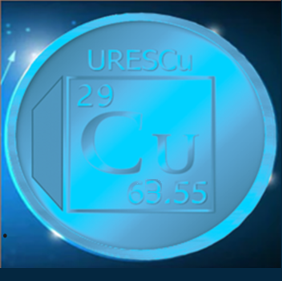

- Accredited Investor
- Address
- After Repair Value
- ARV
- Airdrop
- Anti-Money Laundering
- AML
- Appreciation
- As-is
- Ask-Me-Anything
- AMA
- Asymmetric Key Cryptography
- Atomic
- Automated Market Maker (AMM)
- Bad Debt Buying
- Bargain and Sale Deed
- Barter
- Barter currency
- Barter cryptocurrency
- Basis
- Basis Point
- Bitcoin
- Blockchain
- Bonding Curve
- Bricked Funds
- Bridge Loan
- Burn
- Cashflow
- Cash-on-cash return
- Closely Held
- Coin
- Collateralized Currency
- Collateralized Debt Obligation
- Consensus Protocol
- Contract Account
- Control
- Credit delegation
- Crypto-asset
- Crypto exchange
- Cryptocurrency
- Cryptographic Hash
- Current Condition Value
- CCV
- dApp
- Debt
- Decentralized Autonomous Organization
- DAO
- Decentralized Exchange
- DEX
- Decentralized Finance
- DeFi
- Deed
- Deed of Trust
- DOT
- DeFi
- DeFi Legos
- Depreciation
- Digest
- Direct Incentive
- Double Spend
- Due Diligence
- Dutch Auction
- Equity
- Equity token
- ERC-20
- ERC-721
- ERC-1155
- Escrow
- Ethereum
- ETH
- Ethereum 2.0
- Ethereum
- Externally Owned Account
- EOA
- Factoring
- Fair Market Value
- FMV
- Fiat Currency
- Fintech
- Flash Loan
- Flash swap
- Fork
- Fungible
- Non-fungible
- Gas
- Geoblock
- Governance Coin
- Governance Token
- Governance Token
- Governance Coin
- Grant Deed
- Halting Problem
- Hash
- Hexadecimal
- Horizontal Scaling
- Impermanent Loss
- Incentive
- Initial Defi Offering
- IDO
- Initial DeFi Offering
- IDO
- Initial Exchange Offering
- IEO
- Invariant
- Keeper
- Know Your Business
- KYB
- Know Your Customer (KYC)
- KYC
- Layer 2
- Leasehold
- Liquidity
- Liquidity Provider
- LP
- Mainnet
- Mezzanine Debt
- Miner
- Miner Extractable Value
- Mint
- Mortgage Deed
- Multi-family Housing
- MFH
- Networked Liquidity
- Node
- Non-fungible
- Fungible
- Non-Fungible Token
- NFT
- Non-recourse loan
- Nonce
- Note Brokering
- Buying
- Optimistic Rollup
- Option
- Oracle
- Order Book Matching
- Perpetual futures contract
- Points
- Private Offering
- Proof of Stake
- PoS
- Proof of Work (PoW)
- PoW
- Quitclaim Deed
- Real Estate Owned
- REO
- REXNET
- Router Contracts
- Scaling Risk
- Schelling-Point Oracle
- Seller financing
- Sharding
- Single Family Housing
- Single Family Residence
- SFH
- Single Family Residence
- Single Family Housing
- SFR
- Slashing
- Slashing Condition
- Smart Contract
- Sophisticated Investor
- Sovereign Lien
- Special Purpose Deeds
- Specie
- Stablecoin
- Staked Incentive
- Staking
- Swap
- Symmetric Key Cryptography
- Testnet
- Token
- Token vs coins
- Trading pairs
- Transparency
- TROPTIONS
- XTROPTIONS
- Utility Token
- Value
- Vampirism
- Vault
- Velocity of Capital
- Vertical Scaling
- Vet
- Vett
- Wallet
- Crypto-wallet
- Warranty Deed
- Wholesaler
- Yield Farming
Proof-of-stake is a cryptocurrency consensus mechanism for processing transactions and creating new blocks in a blockchain. A consensus mechanism is a method for validating entries into a distributed database and keeping the database secure. In the case of cryptocurrency, the database is called a blockchain—so the consensus mechanism secures the blockchain.
An alternative consensus mechanism, and a key feature of Ethereum 2.0, in which the staking of an asset on the next block replaces the mining of blocks as in proof of work (PoW). In PoW, miners need to spend on electricity and equipment to win a block. In proof of stake, validators commit some capital (the stake) to attest that the block is valid. Validators make themselves available by staking their cryptocurrency, and then they are randomly selected to propose a block. The proposed block needs to be attested by a majority of the other validators. Validators profit by both proposing a block and attesting to the validity of others’ proposed blocks. If validators act maliciously, there is a penalty mechanism whereby their stake is slashed.

